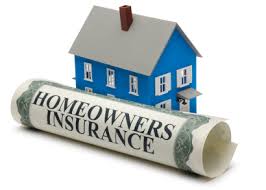By Randall Schreffler
 This is a question I am asked a lot when delivering homeowners insurance quote to a new home buyer. The answer is quite simple, but not as one might expect. Many realtors and homeowners see the home value determined by the insurance carrier and wonder how, why and just where in the world did they get that figure! Below are some of the simple facts used to determine a home’s value by insurance carriers along with some tidbits of information and my professional thoughts on the topic. I will also address some common misnomers regarding how value is determined on a home in this blog.
This is a question I am asked a lot when delivering homeowners insurance quote to a new home buyer. The answer is quite simple, but not as one might expect. Many realtors and homeowners see the home value determined by the insurance carrier and wonder how, why and just where in the world did they get that figure! Below are some of the simple facts used to determine a home’s value by insurance carriers along with some tidbits of information and my professional thoughts on the topic. I will also address some common misnomers regarding how value is determined on a home in this blog.
-First and foremost and contrary to popular belief, a home’s value is NOT determined by the insurance agent, but rather the insurance carrier. The agent is simply a messenger of facts as presented. So when you see a home value that is shocking or not in line with what you think it is worth, you know what they say….”Don’t shoot the messenger” folks.
-Insurance carriers (and agents) always think “worst case scenario” when pricing a risk. Not because they are negative people, although we do have our share of those like any industry, but because they have to think in this manner. They assume at some point during the policy period they may have to re-build the structure from the ground up and consequently want to be fully prepared to do that. This is not a bad thing when you think about it logically and is what most homeowners are going to expect from their policies should they experience this type of loss. The dwelling price is really the “re-build” price for that structure and labeled as Coverage A on the homeowners policy. Imagine being told your homeowner’s insurance carrier ran out of money during the re-building of your recently destroyed home. That is a major bummer and definitely NOT what you want to hear during a time that is so chaotic and stressful. This makes insuring the home to “re-build” value a must for all homeowners.
-A majority of Insurance carriers have gotten extremely tech savvy and penny wise. They have access to complicated, but extremely accurate databases of information regarding contractor labor cost by zip code along with material costs and zoning laws and expenses associated with re-building structures. This allows them to more accurately determine what it might cost to re-build a structure in today’s market. This most often does NOT include the cost/value of the land surrounding the home as that is not covered under most homeowner’s policies.
-In real-estate it is location, location, location. In the homeowners insurance world it is features, features, features. The more features a home has, the higher it will cost to re-build the home in the event of a total loss. You guessed it, the higher the cost to re-build, the higher the cost the homeowners policy will be. So why not “fudge” the features? Outside of that being insurance fraud highly unethical, insurance companies more often than not order home inspection reports to find out exactly what they are insuring. Also, remember, the homeowner wants to have the place re-built and not run out of money, so shorting features only hurts them in the end and may end up in a total claims denial during their biggest time of need.
-But the web says it is valued at $ name the price! Trulia/Zillow/Realtor.com, you name the site. They are all great sources of information and great tools for us, but what they value a home at, what features they list and their accuracy can be vastly different from reality. Most of the time they are close to correct, but not quite. Take a home’s square footage for example. The square footage used on many of the real-estate sites are often based on tax assessment information. They often do not factor in a finished basement or lower level. However, insurance carriers do. Why? They are going to have to re-build that part of the home should a total loss occur by a covered peril. So, while it may show as 1000 sq. feet of living space on the web, after you add in the 1000 sq. foot finished basement with extra features the home value is sure to be more.
-In conclusion, you simply cannot base the home’s value on what you can sell it for in today’s market. Insurance companies/agents and realtors/real-estate agents are really looking at the home’s value from two very different perspectives. A good agent and insurance carrier are going to make sure they are insuring the home to “re-build” value so if the homeowner ever has to use the policy to re-build their home there is enough money to do so (insure to value). Of course you already know this after reading this blog. It feels good to be on the same page and know why, doesn’t it? I hope you found this helpful. I welcome your feedback, questions and comments.
*Randy Schreffler is a local independent insurance agent with more than 14 years of experience in the insurance industry. If you wish to send Randy an e-mail you can do so at



Leave A Comment
You must be logged in to post a comment.